Focus on refractory & abrasive markets
By Nicholaus Rohleder, Co-Founder, Climate Commodities*
The nexus between industrial minerals and national security is a topic of paramount importance, often overlooked in broader discussions about defence readiness and strategic autonomy.
Title Image: An illustration of the LGM-35A Sentinel, the US Air Force’s newest weapon system under development as part of a multi-billion-dollar missile modernisation phase (Courtesy US Air Force); Inset top right: mining bauxite in Brazil for processing by Bautek Minerais Industriais Ltda, for refractory and abrasive markets; Inset bottom right: A fused magnesia ingot cooling at QMAG’s Rockhampton Queensland, Australia plant, used in refractories (Courtesy QMAG).
The forthcoming delves into the indispensable role that specific minerals play in sustaining and enhancing a nation’s defence capabilities.
This analysis is not merely an academic exercise; it is a critical evaluation of how the very backbone of a nation’s defence infrastructure is contingent upon access to and the processing of industrial minerals.
Refractories and abrasives, the two focal points of this discussion, are markets that rely heavily on a suite of industrial minerals critical for their production.
Refractories, materials that are resistant to heat and wear, are indispensable in industries that require high-temperature processes, such as steelmaking, a vital component in military hardware production.
Key minerals, such as bauxite, alumina, silica, magnesite, and graphite, are not just commodities; they are strategic assets that empower nations with the capability to produce armour, weaponry, and other critical military infrastructures.
Similarly, the abrasive market, which includes materials used for cutting, grinding, and polishing, depends on minerals like corundum (aluminium oxide), silicon carbide, garnet, and diamond.
These minerals are pivotal in the manufacturing processes of civilian industries and in the maintenance and production of defence systems. Precision manufacturing and maintenance processes for military equipment require the highest-quality abrasives to ensure performance and reliability under the most extreme conditions.
The criticality of these industrial minerals extends beyond their direct applications. Their strategic importance is also reflected in the geopolitical dynamics of supply and demand, with nations keenly aware of the need to secure reliable sources.
The concentration of these mineral resources in geopolitically sensitive areas adds a layer of complexity to national security strategies, forcing countries to navigate a delicate balance between securing sufficient supplies and maintaining diplomatic relations.
The forthcoming aims to shed light on the often underappreciated but absolutely critical role that industrial minerals play in the defence and national security sectors. By focusing on the refractory and abrasive end markets, we gain a clearer understanding of how these materials underpin the manufacturing and operational readiness of defence capabilities.
The discussion extends beyond mere resource identification, exploring the strategic implications of mineral dependency and the measures nations must undertake to secure their supply chains against the backdrop of an increasingly uncertain global landscape.
“In the increasingly complex landscape of global defence and national security, the significance of industrial minerals cannot be overstated. These materials form the backbone of our defence technology and infrastructure, serving as a foundation upon which the strength and resilience of our national security apparatus is built,” said Ellis Sullivan, Chief Executive Officer of Climate Commodities Processing, an industrial and critical minerals company.
“It is imperative that we recognize and act on the strategic importance of securing a stable and sustainable supply of industrial minerals to ensure our defence mechanisms remain robust and responsive to emerging threats. Our future security and defence capabilities hinge on our ability to understand, value, and protect these vital resources.”
Importance of refractory minerals in defence & national security
Refractory minerals such as bauxite, alumina (aluminium oxide), magnesite, silicon carbide, and graphite are valued for their high melting points, thermal stability, and resistance to thermal shock and chemical attack. These properties make them indispensable in environments subjected to extreme conditions.
In aerospace and aviation, refractory minerals are critical for components that must withstand high thermal and mechanical stress. Silicon carbide, for example, is used in turbine engines to improve efficiency and performance. Its thermal conductivity and resistance to oxidation at high temperatures ensure reliability in demanding environments.
Missile technology also leverages refractories in several components, including nose cones and rocket nozzles. These materials must resist the intense heat generated during launch and flight, as well as the thermal shock experienced upon re-entry for intercontinental ballistic missiles (ICBMs). Graphite and silicon are commonly used for their exceptional thermal properties and durability.
Turning to the battlefield, advanced ceramics made from refractory minerals provide superior protection in military and armour systems, including personal body armour and armoured vehicles. Boron carbide and silicon carbide ceramics offer a combination of lightweight and hardness, capable of withstanding high-velocity projectiles and shrapnel.
Lastly, in nuclear defence applications, refractories play a crucial role in the containment and management of nuclear materials. They are used in the construction of reactors and storage facilities, where their ability to withstand radiation and high temperatures ensures safe operation. Zirconium dioxide (zirconia) is particularly valued for its low neutron absorption cross-section and high-temperature stability.
Nicholaus Rohleder will be presenting
“Financing waste to industrial mineral value assets” atFull Programme & Details here
Importance of abrasive minerals in defence & national security
Abrasive minerals such as aluminium oxide (corundum), silicon carbide, garnet, and diamond are prized for their hardness and wear resistance. These minerals can cut, shape, or finish other materials, especially in applications requiring high precision and minimal damage.
Abrasive minerals are integral to the maintenance processes of military equipment, including vehicles, aircraft, and naval ships. These processes often require the removal of rust, paint, or other coatings, as well as the smoothing of surfaces to ensure proper operation and longevity of the equipment. Silicon carbide and aluminium oxide abrasives are commonly used for these purposes, offering the right balance of toughness and cutting ability.
In the manufacturing of critical defence components such as jet engine parts, missile components, and optical systems, precision is paramount. Abrasive minerals are utilized in the shaping and finishing of these components to achieve the necessary specifications and tolerances. Diamond abrasives, in particular, are used for polishing high-value components to achieve extremely smooth surfaces, essential for optimal performance and reliability.
The application of protective coatings and camouflage on military assets is another area where abrasive minerals are vital. Before applying these coatings, the surfaces of vehicles, aircraft, or other equipment must be properly prepared to ensure adhesion and durability. Abrasive blasting techniques, employing materials like garnet, are employed to clean and texture surfaces, preparing them for the application of protective layers.
Lastly, in scenarios involving nuclear contamination, abrasive minerals play a critical role in decontamination efforts. The process involves the use of abrasive blasting to remove radioactive particles from surfaces, reducing the risk of exposure and contamination spread. Garnet, known for its low dusting properties and reusability, is particularly suited for such sensitive and critical operations.
The path forward: focusing in on an overlooked sector
The strategic importance of industrial minerals in the realms of defence and national security cannot be overstated.
Refractory and abrasive minerals, with their unique properties and wide-ranging applications, are not mere commodities but pillars upon which the strength and resilience of a nation’s defence capabilities are built.
From ensuring the reliability and efficiency of high-temperature processes in military hardware production to enabling precision manufacturing and maintenance of defence systems, these minerals are at the heart of modern military readiness.
The geopolitical implications of mineral resource distribution further underscore the need for countries to adopt comprehensive strategies to secure their supply chains. In an era marked by geopolitical tensions and the looming threat of resource scarcity, the ability to maintain access to these critical minerals is synonymous with maintaining national security.
As we move forward, it is imperative for policymakers, industry leaders, and defence strategists to recognize the critical role of industrial minerals in defence and national security. Investing in sustainable mining practices, diversifying sources of critical minerals, and fostering international cooperation are essential steps to mitigate risks associated with supply disruptions.
Furthermore, advancements in recycling and substitution for these critical minerals can provide alternative pathways to reduce dependency and enhance strategic autonomy.
The foresight and actions taken today to secure and manage these invaluable resources will determine a nation’s preparedness and resilience in facing the challenges of tomorrow.
The discourse surrounding the nexus of industrial minerals and national security is not just a matter of economic interest or academic pursuit; it is a clarion call to safeguard the very foundations of defence infrastructure for future generations to deter a major conflict.
* Contributing Author: Nicholaus Rohleder is the Co-Founder of Climate Commodities, a climate economy-focused platform company with operating subsidiaries in mineral processing & refining, renewable power, insurance, and commodity/product marketing. In addition to this, he teaches the Climate Technology: Finance & Policy course at the University of Pennsylvania as an Adjunct Professor, serves as a Fellow at The Economic Club of New York, and serves as a Visiting Fellow at the National Security Institute. nr@climate-commodities.com

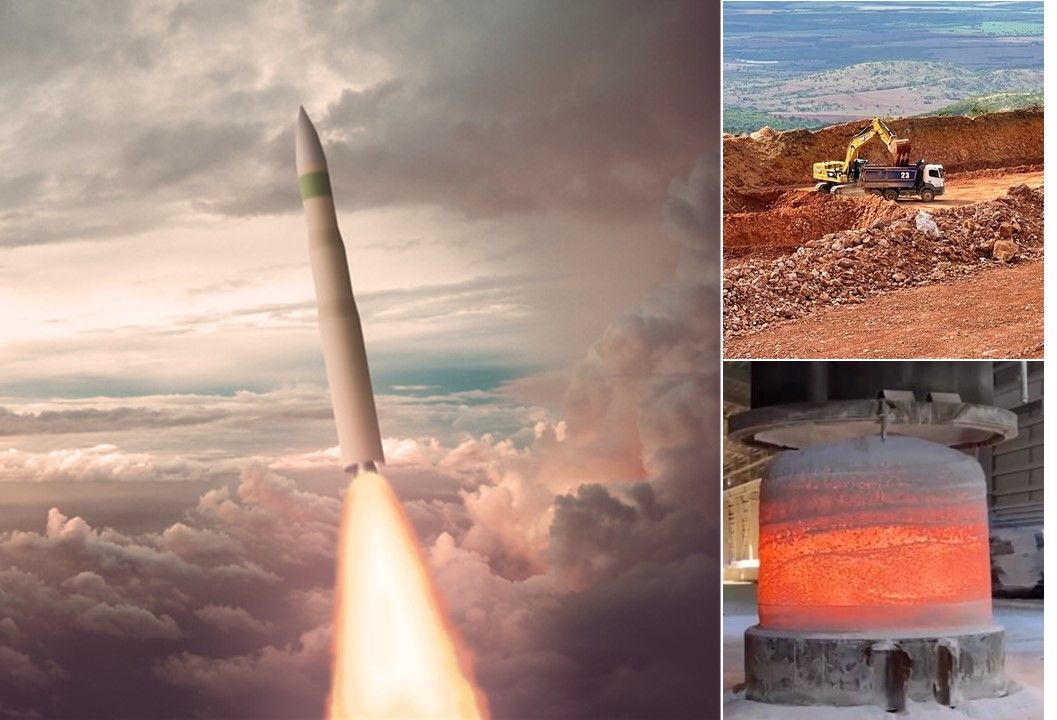

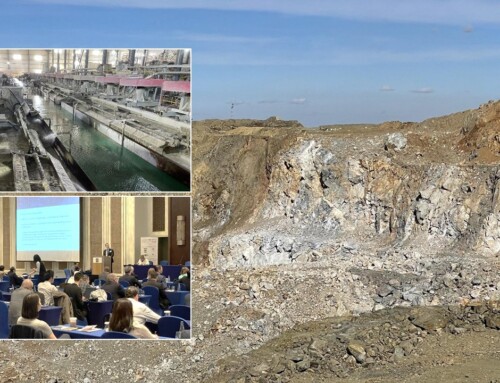
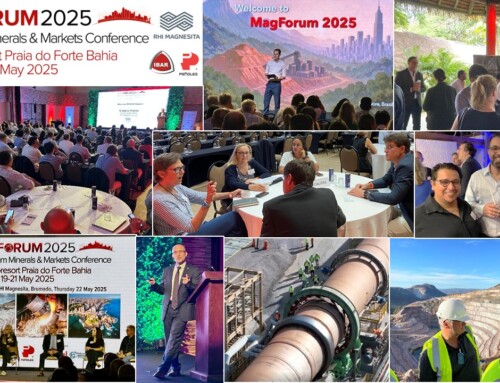
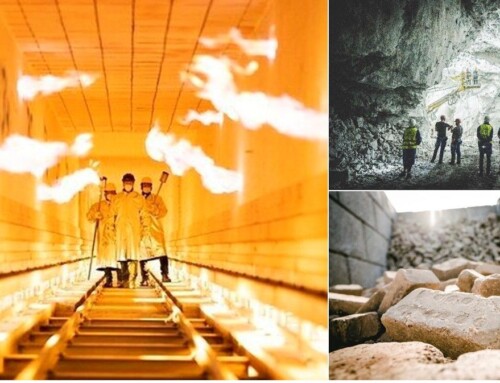
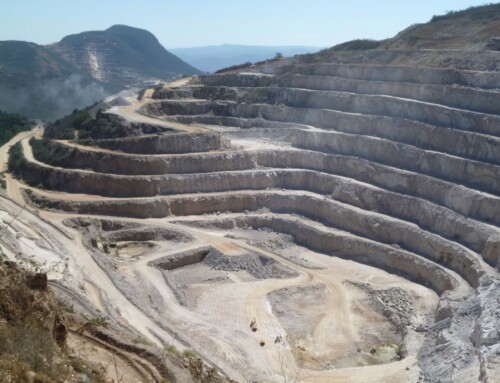

Excellent article. Mike you have the experience, reputation and knowledge to take a global lead in this matter. Most politicians and public do not see or understand the global supply chains for industrial minerals apart from battery minerals. Alternative products and recycling is an important component as well.